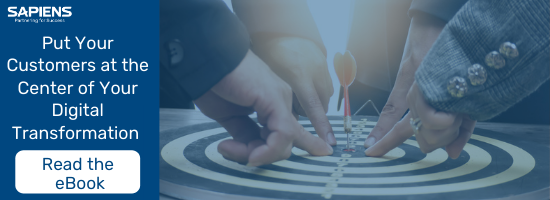Tracking Technologies
Transformational technologies that monitor and enhance our behavior are embedded in the fabric of our lives. Tracking devices that monitor physical activity, heart rate and blood pressure are just some examples. In the insurance arena, these devices can track customer actions. The actions customers take can lead to monetary incentives via reduction of insurance premiums, better health outcomes and less claims overall
Let’s review how integration of some tracking devices can benefit both insurers, as well as insureds.
Read our white paper about Digital Customer-Centricity
Tracking devices on vehicles:
- Driving pattern devices – good drivers earn discounts for exemplary behavior on the road, i.e. obeying speed limits and traffic rules. Being low risk, you will see rewards reflected in lower premium cost and discounts.
- Mileage monitoring devices – measures miles driven. Your pricing is reflected on the actual usage of your vehicle, not on a standard assumed driving rate.
- GPS tracking technology –encourages safer driving patterns. However, it also helps lower claims due to vehicle theft, and helps monitor and limit the usage of company vehicles for personal purposes.

Tracking devices for health insurance:
- Wearable Fitness Trackers – fitness data collection in exchange for a policy discount, known as interactive policies, takes in consideration fitness habits of the insured.
- Wearable ECG Monitors – measure electrocardiogram and sends readings to the user’s doctor. These monitors can detect atrial fibrillation, guaranteeing early warning/action and better outcomes.
- Wearable heartrate monitors – can store up to 100 readings that can be transferred to a mobile app for review, comparison and sharing data with physicians. Also helpful in gaining insights, such as how your personal habits affect blood pressure.
- Biosensors – self-adhesive patch that collects data on movement, heart rate, respiratory rate and temperature. This device has been proven to reduce up to 89% reduction in patient deterioration into preventable cardiac or respiratory arrest.
Tracking devices for commercial and personal insurance:
- Sensors for water leakage & flood – round the clock monitoring and alerts for the most common causes of water loss. Communication through an app for immediate notifications, warnings thus lowering emergencies and reducing claims. Installation of these devices results in premium discounts since they lead to early detection and mitigate expensive claims. In some instances, these devices include automatic shuts offs, making them even more efficient.
As tracking devices become more sophisticated and pervasive in our personal and business lives, the wealth of essential data will entitle users to better discounts and pricing, and overall prevent claims by being proactive. From the insurer perspective, the data they will obtain will allow them to personalize insurance and react to issues that may need correction. Overall, any type of tracking device can only lead to efficiencies and positive changes.
